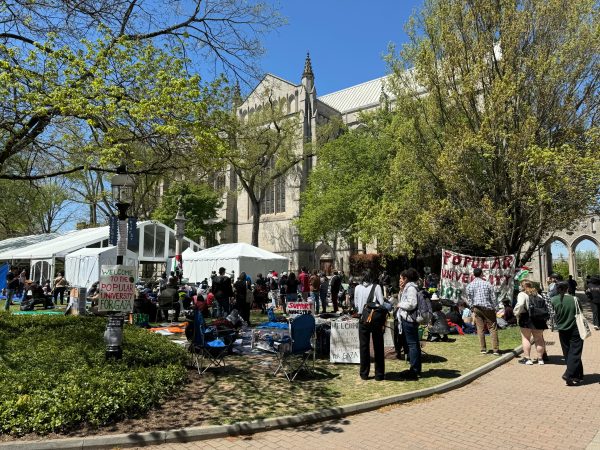A Student’s Plea for No-Homework Weekends
With looming college applications and standardized tests haunting students, the first and second quarters are the most difficult for all Upper School students. Shifting from a summer schedule back to a school one, relearning everything from the previous year, studying endlessly for the SAT or ACT, and writing college essays, all while staying on top of school work, is difficult and takes a toll on students, especially after spending much of last year online.
Many teachers did not complete their entire curriculum last year, and students struggled without the collective environment that they were used to.
Junior Devin Abraham said, “I feel like most of my classes did not cover as much as they normally would have without COVID, so I am entering my classes without all the prior knowledge I should have.”
Senior Ryan Hardiman added, “I think the lack of connectedness last year definitely created more of a challenge in understanding the material, so as we returned this year, I found holes in my understanding of certain topics.”
Subjects like math and science, where learning is based largely on collaboration and discovering new concepts and ideas together, took a big hit. Language classes also struggled as face-to-face conversations are needed to reinforce basic dialect and communicate effectively.
Sophomore Nathan Koo said, “I was rusty with my Spanish speaking abilities as a by-product of the limitations in talking over Zoom.”
Similarly, junior Elynor Starr said, “Certain classes like Latin, I could get by with minimal effort because it was remote, so I was never forced to truly learn anything, and I feel like I’m starting over from freshman year.”
Students are also struggling with coming back to the “normal” schedule. Getting to school at 8 a.m. and having to go through six classes—one of them, the dreaded long block—can prove challenging after falling into a habit of sleeping in and only having four classes per day starting at 9 a.m.
Elynor said she had a tough time adapting. “I miss being able to sleep more than six hours a night and still getting my homework done.”
Studies have shown that high school students should get a minimum of eight hours of sleep a night, while closer to 10 hours is ideal. Yet according to the CDC, 72.7% of high school students don’t meet this goal. With more activities resuming, Latin students are also struggling to meet the recommended amount.
Even during the first week of school with little to no homework, students in the Honors Biology classes averaged just eight hours of sleep. Add in two hours of homework each night and that average may be closer to six hours, which is well below recommended amounts.
Junior Anton Schuster noted, “I often get six hours of sleep a night, but one or two days a week I’ll get four-and-a-half to five hours. Almost every school day, I wake up tired.”
The lack of sleep and increased workload added on top of an already stressful process of standardized test prep or writing and submitting college applications is difficult for students.
Junior Akili Parekh said, “I often have to spend five to six hours at my desk on Sundays to finish all my homework and take practice tests.”
Six hours on a Sunday sitting at a desk is absurd. Weekends are meant for relaxation, for taking your mind off of things, for resetting.
Elynor added, “There’s just very little down time to do stuff for fun. I have almost no free time and can’t enjoy myself.”
“This year I have felt overwhelmed in every sense with the workload in class. My focus level has dropped,” junior Alice Mihas said.
Students feel overworked despite this year’s school motto, “nourishment.” Clearly, we are not living up to our ideals as a community.
No-homework weekends would alleviate much of the stress students are experiencing.
Implementing no-homework weekends in the first and second quarters of the school year could help everybody. Freshmen and sophomores could use a break, and get extra sleep or explore outside interests. Juniors and seniors would benefit even more.
Alexandra Fields, Director of College Counseling at Latin, said that she’s noticed an uptick in early action and early decision applications among seniors. “This means that many students are dealing with earlier deadlines, November instead of January, so the work they have to do is condensed into the first few months of school,” she explained. “I certainly think it’s great if seniors have a bit more time in their schedules given that in the fall, they have a lot of additional work for college applications. This could hopefully help manage stress and cut down the late nights.”
Senior Will Benford pleaded to Kristine Von Ogden, Upper School Director, for no-homework weekends in a letter sent in late September. Will began noticing his classmates’ struggles and sleep deprivation. Many weren’t getting to bed until 1 or 2 a.m and were sleeping for only six to seven hours, not enough to function at a high level during the day. Will noted the struggles of going from four classes a day last year to six classes this year with no time to adapt.
He also cited Latin’s mission statement, which reads, “Latin School of Chicago provides its students with a rigorous and innovative educational program in a community that embraces diversity of people, cultures and ideas. Latin inspires its students to pursue their passions and lead lives of purpose and excellence.”
College is a place where students can pursue their passions and lead lives of purpose and excellence. But the senior class cannot do this without getting in first, which requires time and dedication that they do not have now.
Ms. Von Ogden did tell teachers to reduce workload for seniors during October, but it never fully worked. Seniors were still left with tons of homework. Will said, “I didn’t think the response was adequate. It’s still a pressing issue, and there is still a lot to discuss.”
Juniors also could benefit with some extra time to study for standardized tests that are needed to get into many colleges.
ACT and SAT practice tests take three to four hours on average, and they drain you. Productivity and focus go down after that long of a test, and doing school work wouldn’t be as beneficial after it. So why have it at all? The administration should designate just a few no-homework weekends to allow juniors study and seniors to allocate more time toward preparing for college.
This idea is not unprecedented, either. While Tim Cronister was Upper School Director, he implemented a few of these weekends throughout the school year. “I think the no-homework weekends were at least good psychological gestures, even if students ended up doing some homework over them anyway,” he said.
The purpose of high school is to prepare students for college and provide healthy life habits. Giving students time to focus on actually getting into college would help.
No-homework weekends would also allow students to catch up on sleep and create opportunities for freshmen and sophomores to participate in more activities, branching out to different communities, and creating new hobbies. All of these are healthy life habits, which would be beneficial to students beyond just high school.
No-homework weekends are an effective solution to students’ difficulties during the beginning of the school year. It will prepare them for college, and life beyond, as well as provide a much needed mental break, resulting in greater productivity while in class.

Akshay Garapati (’23) is excited to be serving his first term as the Sports Editor for The Forum. Previously, he served as the Opinions Editor. Editing...

















































